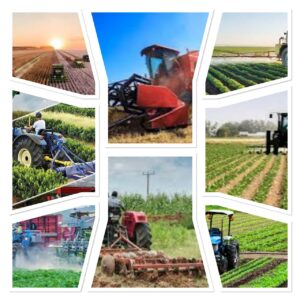We can create 2 million jobs and also solve the problem food security with this simple strategy.
From Napoli in Italy to Rome by train, the picturesque scenery transforms from bustling city life to vast stretches of crop farms as far as the eye can see. The lush green fields of crop farms line both sides of the railway, providing a serene and tranquil backdrop for the train journey. It’s a sight to behold, and it’s no wonder that agriculture plays such a significant role in the Italian economy.
As the train chugs along, the rhythmic clatter of the wheels is punctuated by the occasional glimpse of a quaint farmhouse nestled among the fields. Farmers can be seen tending to their crops, their hard work evident in the bountiful harvest that stretches out before them. From vineyards producing renowned Italian wines to fields of wheat and vegetables, the diverse landscape is a testament to the agricultural prowess of the region.
The transition between Napoli and Rome serves as a striking reminder of the vital role that agriculture plays in shaping the Italian countryside. It is a reminder of the connection between the land and the people, and the importance of sustainable farming practices in preserving the natural beauty of the landscape.
Now, contrast this with the journey from Lagos to Ibadan in Nigeria, where the landscape is punctuated by a different sight altogether – a proliferation of places of worship lining the railway. Churches, mosques, and temples dot the horizon, symbolizing the deep-seated religious faith that permeates the region. This religious fervor is a visible testament to the spiritual importance held by the people of Nigeria.
It’s an extraordinary juxtaposition – from the fertile fields of Italy to the places of worship in Nigeria. And it begs the question, what if there was a way to combine these two landscapes for the benefit of the nation?
The answer could lie in the development of agricpreneurship along the Nigerian rail tracks. The government could acquire a two-kilometer stretch on either side of all rail tracks and allocate it to agricpreneurs for the cultivation of grains, tuber crops, and vegetables. This initiative would not only increase agricultural productivity but also provide a range of benefits for the local communities and the nation as a whole.
First and foremost, it would address the issue of food security by increasing the country’s agricultural output. With more land dedicated to farming, there would be a higher supply of essential food staples, which in turn could help to stabilize prices and ensure a reliable food supply for the population.
Furthermore, the development of agricultural infrastructure along the railway tracks would provide employment opportunities for local communities. This could help to alleviate poverty and stimulate economic growth in rural areas, ultimately contributing to the overall development of the nation.
Additionally, the presence of agricpreneurship along the rail tracks would enhance security for travelers. With more people working on the land, there would be a greater presence of communities along the railway, helping to deter crime and ensure the safety of passengers and cargo.
In conclusion, the development of agricpreneurship along the Nigerian rail tracks holds immense potential for the country. It offers a unique opportunity to harness the natural resources of the land and transform them into a source of economic strength and resilience. By allocating land to agricpreneurs and providing the necessary infrastructure, the government can create a win-win situation for both the agricultural sector and the nation as a whole. It’s a vision of transformation and progress, where the countryside is not just a passive backdrop, but a vibrant source of growth and prosperity.
Otunba Abdulfalil Abayomi ODUNOWO
National Chairman AATSG
11th January, 2024






